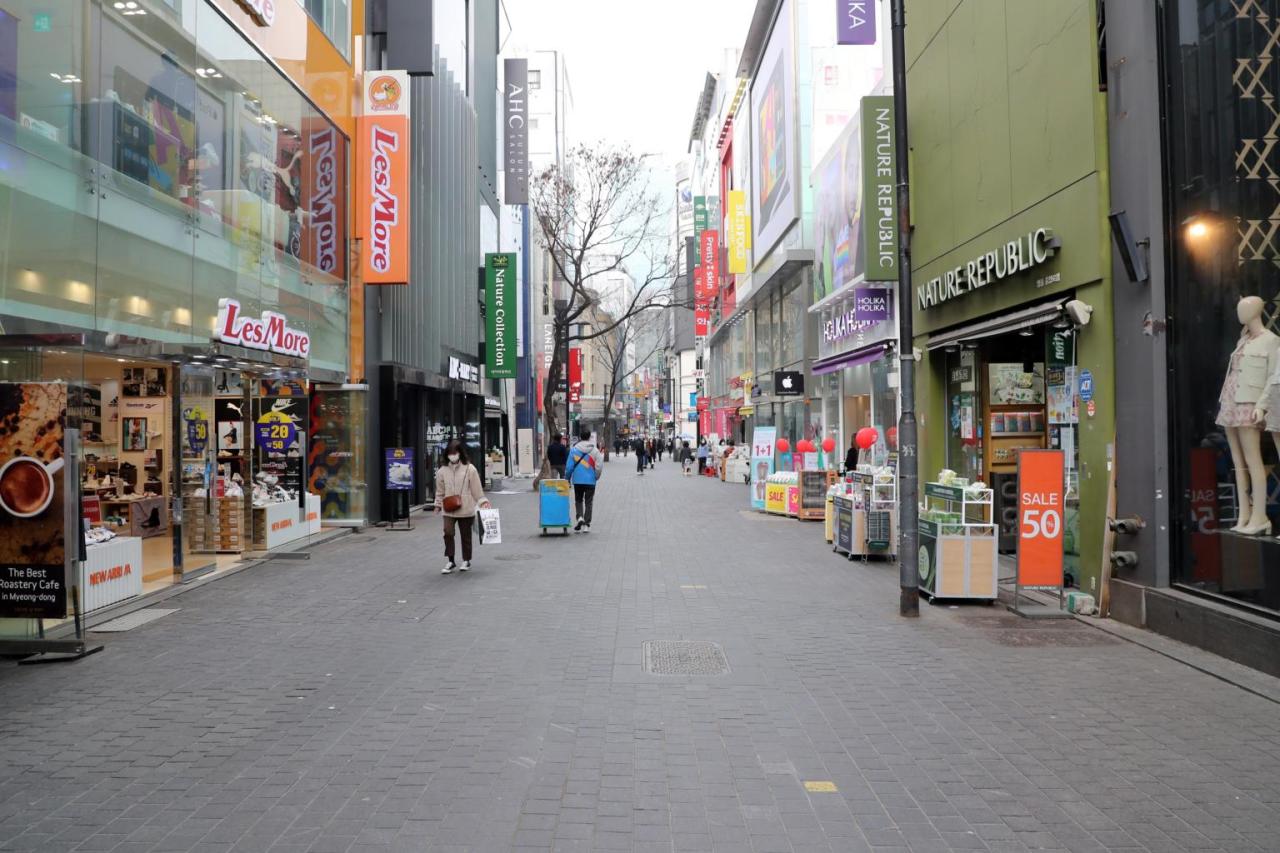 |
(Yonhap) |
South Korean businesses' sales and profitability worsened in the first quarter from three months earlier, central bank data showed Tuesday, amid slowing demand at home and abroad caused by the spread of the new coronavirus.
In the January-March period, sales of local businesses dropped at an average 1.5 percent from the same period last year, accelerating from an average 0.5 percent on-year decline in the last three months of 2019, according to the data from the Bank of Korea.
The quarterly report is based on a review of 1,799 listed companies that are subject to external audits.
By sector, manufacturing businesses saw their drop in sales slow to an average 1.9 percent on-year from 2.4 percent in the fourth quarter of last year, according to the BOK.
Sales of nonmanufacturing or service industries also dropped 1.9 percent on-year, but the negative growth marked a sharp turnaround from a 2.2 percent on-year increase in the October-December period.
The service sector is said to have been hit harder by the new coronavirus pandemic due to people staying at home to avoid possible infection.
The number of people coming to and from South Korea has plunged by more than 90 percent from a year earlier since the country reported its first confirmed case of COVID-19 on Jan. 20, apparently devastating the tourism industry, one of the key industries in the service sector.
Sales of manufactured goods, including consumer products, have also been on the wane due to sharp declines in exports that partly reflect the wide spreading of the contagious disease in other parts of the globe and its crippling effect on demand and business activities.
South Korea's outbound shipments plunged 24.3 percent on-year in April and 23.7 percent in May, despite the country's virus outbreak reaching its peak in late February and early March. The number of daily new infections cases here has remained below 100 since April 1.
With a drop in sales, the firms' profitability also worsened.
Their operating profit came to an average 4.1 percent of their sales, slowing from 5.3 percent a year earlier, while their net profit also slowed from 5.8 percent to 4.8 percent over the cited period.
Their total assets grew at an average 1.5 percent in the three months ended March 31, also slowing from a 3.2 percent on-year increase in the same period last year, according to the BOK.
The firms' average debt-to-equity ratio came to 88 percent as of end-March, up from 84.3 percent three months earlier. (Yonhap)





![[Exclusive] Hyundai Mobis eyes closer ties with BYD](http://res.heraldm.com/phpwas/restmb_idxmake.php?idx=644&simg=/content/image/2024/11/25/20241125050044_0.jpg)
![[Herald Review] 'Gangnam B-Side' combines social realism with masterful suspense, performance](http://res.heraldm.com/phpwas/restmb_idxmake.php?idx=644&simg=/content/image/2024/11/25/20241125050072_0.jpg)

